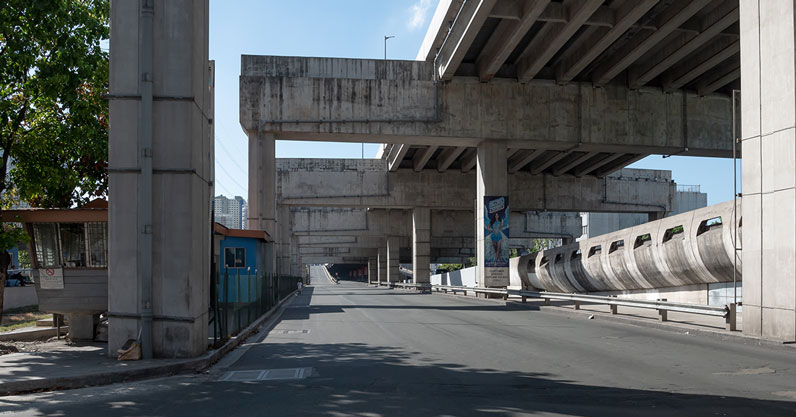ECQ Extension ‘Possible’ In Most Areas In Metro Manila
3 min readIs there any hope in sight for cities placed under enhanced community quarantine (ECQ)?
An ECQ extension for high-risk areas in the Philippines after May 15 is still under discussion, with decisions varying depending on the infection rate of a territory. For starters, the Metro Manila Council (MMC) will discuss if the lockdown in the National Capital Region (NCR) should be further extended to June 15.

According to Parañaque City Mayor Edwin Olivarez, who also acts as the chair of the MMC, are more than willing to back the ECQ extension beyond May 15 if health experts deem that easing restrictions will pose serious risks to public health and safety.
Olivarez cited that cities like San Juan, Mandaluyong, Makati, and Parañaque have high coronavirus infection rates per capita—and moving the restrictions to general community quarantine (GCQ) will make things worse.
The MMC serves as the governing and policymaking body in charge of the NCR’s 16 cities and lone municipality within its jurisdiction. It is also in charge of the policies enacted by the Metropolitan Manila Development Authority (MMDA), as well as other agencies that directly affect the welfare of the citizens of Metro Manila.
ECQ extension ‘likely’ not to happen in these cities
Which areas are deemed “safe enough” to be put under general community quarantine?
In a report by GMA News Online, Interior Secretary Eduardo Año said the cities of San Juan and Valenzuela, as well as the province of Quezon, are being considered to be placed under GQC. He said that the basis for the higher chances of loosening restrictions is due to the slower case doubling time in the said territories.
Other areas, Año said, are still being monitored to determine if an ECQ extension is possible or if they should scale back the restrictions.
“Ang puwede diyan ang tinatawag natin na localized area. So puwede nating i-confine lang ‘yung tatlo, apat na barangay o kaya kung probinsya ‘yan, ‘yung mga municipality para naman makagalaw naman ‘yung probinsya,†he said.
“Nagshi-shift na tayo ng strategy na from lockdown to modified kasi mayroon nga tayong tumataas na capacity. Kung ma-hit natin yung kahit 20,000 [tests daily] muna by May 15, hindi mo na kailangang mag-ECQ kasi you can unmask the virus before it can spread,†Año added.
Once cities or municipalities have been deemed safe enough to be placed under GCQ, certain mobility will be allowed such as reopening of some non-essential industries, limited mass transportation, resumption of work under a rotating skeletal shift, among others. Strict GCQ guidelines such as social distancing, avoiding mass gathering, and others that can cause a second uptick in infections will still be in place.
COVID-free provinces in the Philippines?
As of writing, there are 10,463 cases of coronavirus in the Philippines since the first localized transmission of the disease. Out of all these cases, 696 were declared dead from COVID-19 and 1,743 patients recovered. Â
Although most parts of the country have declared cases, some provinces in the Philippines remain free from COVID-19 with no ECQ extension in sight. These are:
- Agusan Del Sur
- Apayao
- Aurora
- Basilan
- Batanes
- Biliran
- Camarines Norte
- Davao Occidental
- Dinagat Islands
- Eastern Samar
- Guimaras
- Ifugao
- Kalinga
- Masbate
- Mountain Province
- Quirino
- Sarangani
- Siquijor
- Sorsogon
- Southern Leyte
- Sulu
- Surigao Del Norte
- Surigao Del Sur
- Tawi-Tawi
- Zamboanga Del Norte
- Zamboanga Sibugay
According to the National Research Council of the Philippines (NCRP), geography plays the biggest factor in the lack of COVID-19 cases in the provinces above. These cities and municipalities are composed of far-off islands and mountain ranges, and residents are not concentrated. These play a big part in reducing transmission from one person to another.
While these places are currently considered COVID-free, it is crucial that they restrict their borders to keep the virus away from their communities. Samar Representative Edgar Mary Sarmiento says he would urge the Inter-Agency Task Force (IATF) on Emerging Infectious Diseases to slowly loosen restrictions in the said areas so they can have a semblance of normalcy.
“Ang unang-una nating kino-consider, ang food chain. Ang sinasabi natin, specifically sardines, nanggagaling ito sa Mindanao ang raw supply. The reason why we’re doing this [is] para naman gradually ibalik natin sa normal ang ibang lugar na wala namang impeksyon nitong COVID-19,†Sarmiento said.
What do you think of the ECQ extension in NCR and neighboring municipalities? Share your thoughts in the comments.
